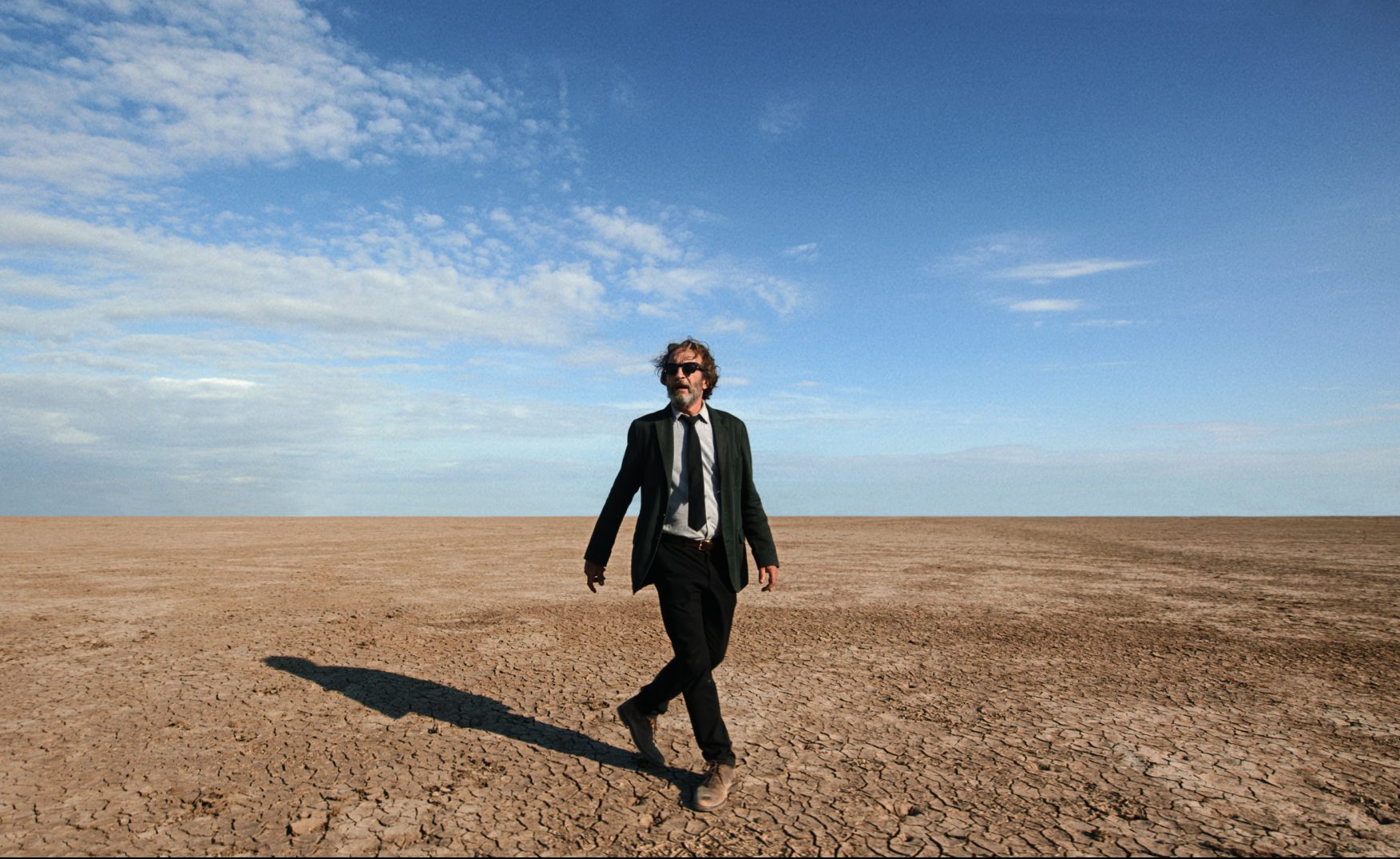After back-to-back Oscar wins for his work on Birdman (2014) and The Revenant (2015), Alejandro González Iñarritu’s status as a Mexican auteur suddenly exploded on the international film scene despite having defected to Hollywood over a decade prior. In the years since, Iñárritu has kept mostly out of sight, flirting with VR in 2017’s Carne y Arena (for which he also earned an Oscar), and directing a Nike commercial the following year. Given the scale and themes of his return to screens, it would only make sense that this muted interim was spent thinking about and planning BARDO, False Chronicle of a Handful of Truths.
The Netflix-produced vanity project concerns self-exiled documentarian Silverio Gama’s (Daniel Giménez Cacho) return to Mexico, where he’s set to receive a North American journalism prize. In many ways, the story mirrors Iñárritu’s own history as a Mexican filmmaker having garnered popular acclaim in the U.S. returning to Mexico on the whims of popular acclaim. The fact that Gama physically looks almost identical to Iñárritu only reinforces this similarity.
With BARDO, Iñarritu looks to start a conversation around the ways in which Mexico has changed and remained the same since his own departure. He ponders over the insecurities he’s accrued for simultaneously showing allegiance and contempt for both the US and Mexico, exploring what it means to be an artist unsure of whether he’s exploiting or decorating his country of origin. Ultimately, BARDO chews on too much. As it circles these concerns in a series of surrealist skits, Iñárritu’s latest spirals out of control.
Perhaps, for the self-castigating auteur, BARDO represents the Pico de Orizaba of a career spent dwelling on questions of identity and fraudulence. But for the average viewer, his latest might feel more like a cavern than a mountain. In its grand swing toward defining the contemporary spirit of Mexico and the role artists play in it, BARDO crumbles to solipsism, with messaging as delirious as it is disappointing.

Bardo: False Chronicle of a Handful of Truths (2022). Daniel Gimènez Cacho as Silverio. Cr. Rodrigo Jardon / Netflix © 2022
Iñarritú left Mexico behind at the turn of the millennium with Amores Perros, a chronologically jumbled riff on Paris, Texas (1984) that had enough shock value to impress international audiences. Its last shot sees the failed guerrillero El Chivo (Emilio Echevarría) aimlessly walk off into the desert after a painful goodbye with his daughter and Mexico City’s criminal underworld. To announce Iñarritú’s return to his forsaken homeland, BARDO opens with a POV shot of Iñarritu’s alter-ego Gama running, leaping, and floating like a space cadet before falling back on firm ground in a similar desert to the one seen at the end of Amores Perros. For all of the filmmaker’s transformations since Amores Perros — chiefly four Oscar wins — it appears Iñárritu has not moved beyond his fixed misery as a hovering observer of Mexico.
Beyond this symbolic opening, BARDO takes on the form of a continued dream as it follows the mishaps of the aforementioned Gama as he gears up to receive a lifetime achievement award. Along the way, Iñárritu makes sure to sneak in a smarmy dose of self-criticism in an attempt at circumventing awaited criticism. The goal is to present himself as a woebegone patriot fighting to authentically express himself against indictments on all fronts. Instead, his self-critical forcefield goes to show Iñárritu suffers from a kind of exacerbated defensiveness that impedes his work from feeling vulnerable and affecting.
For a film trying to appeal to Latino viewers who may be equally confused about their identity, BARDO merely offers a placating sympathy at face-value rather than any thought-provoking discourse. Although the film has resonated with certain viewers for tackling these questions of transnationality head-on where other films dealing with the US and Mexico’s strained relationship might evade them altogether, Iñárritu’s overall diagnosis of these bifurcated citizens is ultimately a damning one.

Bardo: False Chronicle of a Handful of Truths (2022). Daniel GimÈnez Cacho as Silverio. Cr. SeoJu Park/Netflix © 2022
In one of the film’s more emotional scenes, Gama is trapped in a desert surrounded by a parade populated by the familial and national ghosts that have haunted him throughout the film. It appears this is Iñárritu’s understanding of his condition, and that of Latinos caught between both countries: their souls are swamped in a limbo fraught with as much promise and hopelessness as the Sonoran Desert. While it may be interesting to consider this limbo as a site of limitless potential, the aged cynic in Iñárritu says otherwise, and the film’s subsequent complaints about all things film, politics, and art only magnify his sullen outlook on life.
Not even Darius Khondji’s unceasingly imaginative cinematography can rescue this film’s mishmash of aggravating musings and over-the-top set-pieces. As Khondji filters through a recycled closet of Mexican identifiers — Octavio Paz’s Axolotl, a re-creation of Los Niños Héroes’ final stand, Hernán Cortés smoking atop a mountain of Aztec corpses — a surface level understanding of Mexican history is revealed. The film’s judgments on Mexico, art, and politics are unsubtle, leaving no room for audiences to build their own opinions about the film’s themes.
In one of the film’s most grandiloquent scenes, Iñárritu imagines Gama being nailed to a stage, like Jesus Christ, after receiving a posthumous award for his career. Iñárritu wants Gama to be both the humble patriot who dies honorably and the tortured egocentric artist who died too soon.
It’s not politics — of the state or transnational identity — Iñarritú cares about; it’s just himself. At a culminating point in the contemporary autofiction movement, it’s only natural an exploitative rehash of Federico Fellini’s 8 ½ (1963) would curdle itself together with a Netflix budget. Although artists’ tendencies toward lonerism as a means of untapping the hidden alcoves of the human experience are well documented, these micro-macro appeals only work when a naked soul offers itself up to questions and not just responsive nods. BARDO is too self-confident in its hardened agony, and, as a result, its commentary on all things Mexico conveys defeat rather than hope.
This melancholy of the self and its environs reinforces the stilted quality of Iñárritu’s worldly observations. Perhaps he hoped BARDO would have the same effect as La Malinche once held as a rorschach test for one’s thoughts on the tangled cultural politics of Mexico. Instead, BARDO is just another mind-numbing vortex in the limbo of Netflix content.









